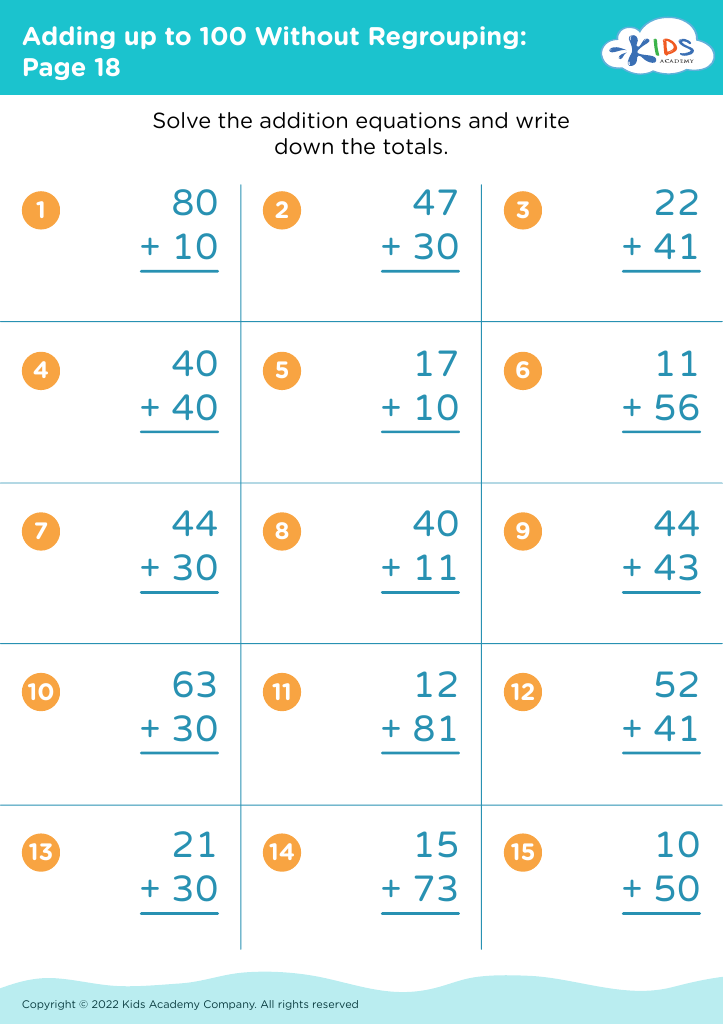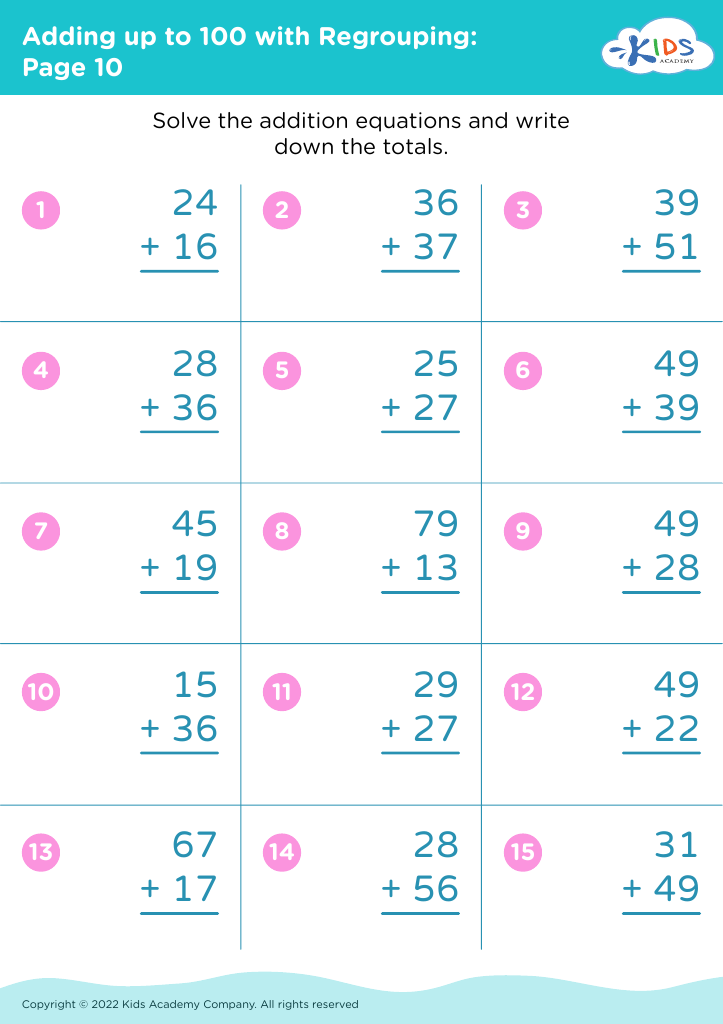Developing math skills Adding up to 100 Worksheets for Ages 3-8
3 filtered results
-
From - To
Unlock your child's potential with our "Developing Math Skills: Adding Up to 100" worksheets, tailored for ages 3-8! These engaging, age-appropriate activities promote foundational math skills as children practice addition concepts and improve their number sense. Featuring colorful illustrations and interactive elements, each worksheet encourages children to explore the world of numbers while building confidence and proficiency in math. Perfect for both home and classroom use, these resources are designed to make learning fun and effective. Foster a love for math in your little ones and watch them excel as they tackle the challenge of adding up to 100!
Developing math skills, particularly the ability to add up to 100, is vital for children aged 3 to 8 as it lays the foundation for critical thinking and problem-solving. At this formative stage, children are naturally curious and eager to learn, making it the ideal time for them to engage with essential math concepts. Mastering addition to 100 encourages numerical fluency, which boosts their confidence in math and nurtures a positive attitude toward learning.
When parents and teachers emphasize these skills, they help students develop cognitive abilities such as estimation, logical reasoning, and analytical skills. Children will encounter addition in everyday life—from sharing snacks with friends to understanding concepts of money—making it a practical skill that enhances life experiences.
Additionally, a strong grasp of basic math fosters connections across various subjects, particularly in science and reading, where calculations and the understanding of sequences are often necessary. Supporting math development at an early age not only prepares children for future educational challenges but also equips them for real-world situations, contributing to well-rounded individuals ready to tackle academic and life challenges with confidence. By investing time and resources into teaching these skills, parents and teachers play a crucial role in shaping future learners.









%20(1).jpg)











